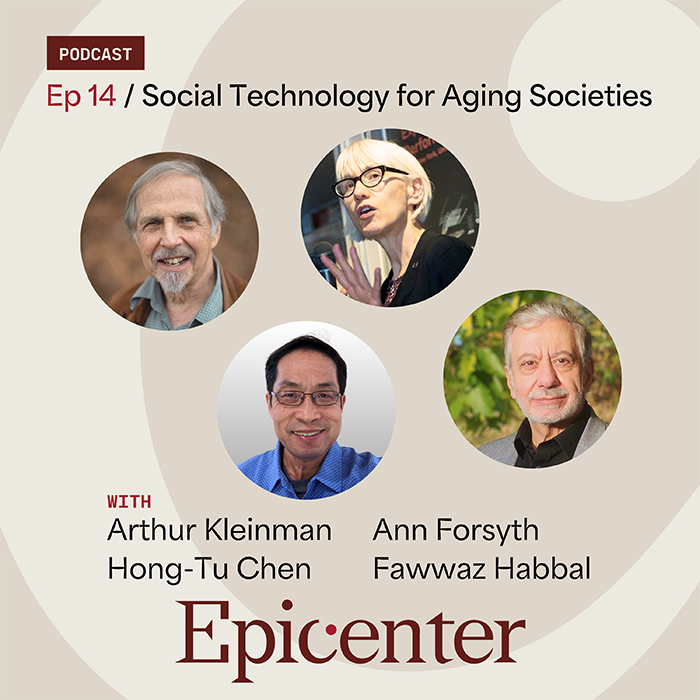PODCAST | ep14 | with Arthur Kleinman, Hong-Tu Chen, Ann Forsyth, and Fawwaz Habbal
People aged sixty-five and older make up the fastest growing population around the world, posing unique challenges to societies. A Harvard initiative called Social Technology for Global Aging Research is founded on the belief that there’s a great potential for technologies and interventions to benefit the elderly, but only if they are developed with a deep understanding of day-to-day life. In the scope of this collaboration, technology for the elderly covers a wide range of needs—from engineering hardware for mobility to designing living environments and even tackling the logistics of meeting friends for tea. It’s an expansive collaboration between Harvard scholars and their Chinese counterparts. We speak with four collaborators who share fascinating examples of their work.

Listen to episode #14 (44:28) by clicking the play button below:
...
Read more about Social Technology for Aging Societies